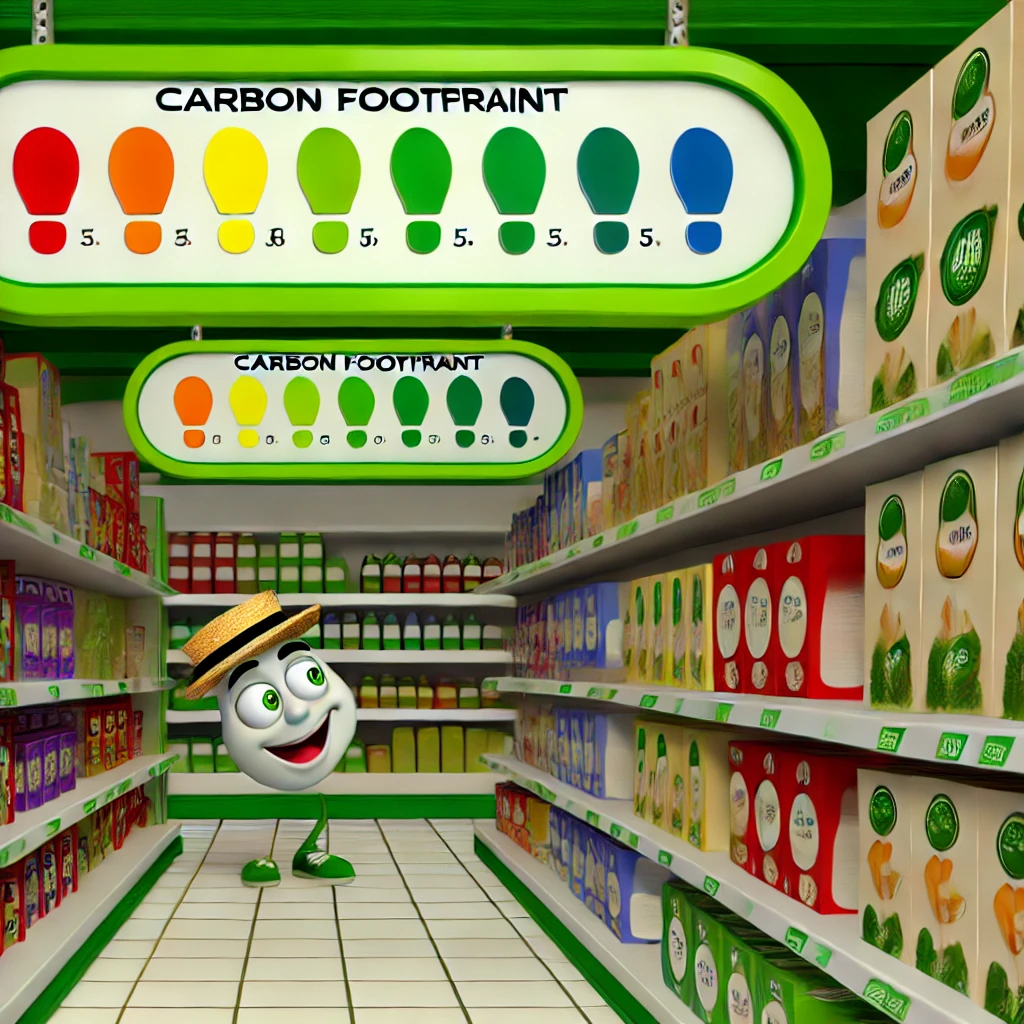
Woolworths and Coles, two of Australia’s largest supermarket chains, have made significant commitments to reducing their carbon footprints and supporting sustainability. Both companies have laid out ambitious climate goals, including:
- Woolworths: Targeting a 63% reduction in Scope 1 and 2 emissions by 2030 from a 2015 baseline, with the goal of being net positive by 2050(Woolworths Group).
- Coles: Committed to net zero emissions by 2050, 100% renewable electricity by FY25, and a 75% reduction in Scope 1 and 2 emissions by 2030 from a 2020 baseline(Coles Group).
However, despite these public commitments, both supermarkets stock imported products that contradict their stated sustainability goals, as these products involve significant carbon emissions and fail to support local farmers. Two key examples are imported bottled water from Europe and Lurpak butter from Denmark, both of which could be sourced from within Australia to support local producers and lower carbon footprints.
Imported Bottled Water: A Case of Unnecessary Emissions
Supermarkets like Woolworths and Coles stock imported bottled water, such as brands from Europe, despite the availability of local water sources. The transportation of a 1-litre bottle of water from Europe to Australia results in substantial carbon emissions:
- European Bottled Water:
- The journey of approximately 16,000 km via sea freight emits 160-640 grams of CO₂ per litre due to the distance.
- When factoring in production and packaging, which contribute another 82.8 grams of CO₂, the total carbon footprint of a European water bottle can range from 242.8 to 722.8 grams of CO₂ per litre.
- Australian Bottled Water:
- Local sourcing involves much shorter transport distances, generally 500 km, with emissions from road transport adding only 30-75 grams of CO₂ per litre.
- With production and packaging similar to imported water, the total carbon footprint for Australian water is estimated to be 112.8 to 157.8 grams of CO₂ per litre, making it far more sustainable than its imported counterpart.
This stark contrast in emissions highlights the contradiction in these supermarkets’ commitments to sustainability. Stocking local bottled water would significantly reduce their carbon footprints while supporting Australian producers.
Lurpak Butter: A High-Carbon Alternative to Australian Dairy
A similar contradiction arises with Lurpak butter, a popular Danish brand. While Woolworths and Coles have positioned themselves as champions of Australian farmers, they continue to sell this foreign product, which contributes to unnecessary emissions:
- Imported Butter:
- Transporting butter from Denmark (roughly 16,000 km by sea freight) results in emissions of 160-640 grams of CO₂ per kilogram.
- Combined with the production process, which varies based on energy sources used in Denmark, the total carbon footprint for Lurpak butter is estimated to be between 350-700 grams of CO₂ per kilogram.
- Australian Butter:
- Australian butter, produced and distributed locally, has far lower transportation emissions, especially when sourced from nearby regions. An Australian butter product would only add 30-75 grams of CO₂ from road transport, resulting in a significantly lower carbon footprint overall, especially considering Australia’s high standard of sustainable dairy practices.
By opting to stock local butter instead of imported options like Lurpak, Woolworths and Coles could drastically reduce their carbon impact and align their actions with their sustainability rhetoric.
A Question of Social License
Beyond the carbon footprint, supermarkets that promote Australian produce while continuing to stock imports raise questions of social license. Supporting local farmers has long been a focal point of both supermarkets’ public relations strategies, yet importing products that compete directly with Australian produce weakens this narrative. This is especially critical in sectors like dairy and bottled water, where Australia has the resources to meet domestic demand. The contradiction between the public commitments of Woolworths and Coles to support sustainability and reduce emissions, and their actions of importing products with higher carbon footprints, undermines their credibility. Coles, for example, has made commitments under its Together to Zero strategy, emphasizing zero emissions, waste reduction, and supporting local supply chains, while Woolworths highlights its end-to-end decarbonization efforts across the supply chain.
Yet, the presence of foreign products like bottled water from Europe and Lurpak butter shows a gap between these sustainability goals and day-to-day business decisions.
Conclusion
If Woolworths and Coles truly want to live up to their sustainability promises, they need to align their product offerings with their environmental goals. This means prioritizing locally produced items that not only support Australian farmers but also have a significantly lower carbon footprint. Continuing to stock imported goods like bottled water from Europe and Lurpak butter reflects a contradiction that undermines their corporate sustainability claims and weakens their social license.
By choosing locally sourced alternatives, they can lower emissions, support Australian agriculture, and stay true to their stated values.
Sources:
- Coles Group Sustainability Report 2021(Coles Group)
- Woolworths Sustainability Overview(Woolworths Group)
